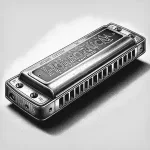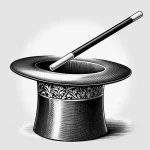Ant keeping is a hobby that offers a unique glimpse into the intricate world of these industrious insects. It’s a pastime that combines elements of pet care, gardening, and ecology, providing an enriching experience that can be both educational and relaxing.
Who Will Enjoy Ant-Keeping?
This hobby is perfect for nature enthusiasts, curious minds, and patient observers. It’s suited for those who appreciate the smaller details of life and are fascinated by the complex behaviors of ants. It’s also great for educators and parents looking to introduce children to the wonders of the natural world.
Essential Equipment and Materials
- Formicarium (ant farm)
- Test tubes for housing new colonies
- Substrate for the formicarium, such as soil or sand
- Nesting materials like coconut fiber or vermiculite
- Feeding dishes
- Watering tools, like pipettes or syringes
- Tweezers and brushes for maintenance
- A magnifying glass or microscope for observation
- A good reference book or guide on ant species and care
Beginner’s Guide to Ant-Keeping
- Research: Start by learning about different ant species and their specific needs. Choose a species that is known to be hardy and suitable for beginners.
- Acquire Ants: Obtain your starter colony from a reputable source. This could be a queen ant with a few workers, or a small established colony.
- Set Up the Formicarium: Prepare your ant farm according to the needs of your species. Ensure proper humidity, temperature, and space for the colony to grow.
- Feeding: Introduce a diet suitable for your ant species, which may include sugars, proteins, and fats. Observe their feeding habits and adjust as necessary.
- Maintenance: Regularly clean and maintain the formicarium, providing fresh water and removing any waste.
- Observation: Spend time watching your ants. Note their behaviors, colony growth, and any changes in their environment.
- Community Engagement: Join online forums, clubs, or local groups to connect with other ant keepers, share experiences, and gain insights.
- Expansion: As your colony grows, consider expanding your formicarium or starting new colonies with different species.
Tips & Tricks
- Start with a hardy and easy-to-care-for species.
- Keep the formicarium out of direct sunlight to prevent overheating.
- Use a soft paintbrush to gently handle ants if necessary.
- Record observations in a journal to track colony progress.
Do You Need a Queen Ant for Ant-keeping?
Yes, if you aim to establish a long-term, self-sustaining colony, a queen ant is essential. Worker ants have a limited lifespan and cannot reproduce. The queen is the only member of an ant colony capable of laying eggs, ensuring the growth and longevity of your ant community. Without a queen, an ant farm will eventually dwindle as the workers perish.
The Art of Formicarium Design
Designing a formicarium can be an art form. Enthusiasts often create elaborate setups that mimic natural habitats, complete with plants and intricate tunnel systems.
Can Ant Keeping Make Money?
While not typically pursued for profit, there are ways to monetize the hobby. Breeding rare species, selling formicariums, or offering educational workshops can provide some income.
Resources
- AntWiki: A comprehensive resource for ant species information.
- Formiculture.com: A forum for ant keeping enthusiasts.
- AntsCanada: An online store and educational YouTube channel.
- The Ant Network: A community for ant keepers with a focus on conservation.
Ant keeping is a hobby that can be as rewarding as it is challenging. It offers a window into a world that operates on a completely different scale and can teach valuable lessons about nature’s complexity and beauty. Whether for education, relaxation, or scientific interest, ant keeping is a hobby that truly has something for everyone. Dive into this microcosm and discover the giants of the small world!












